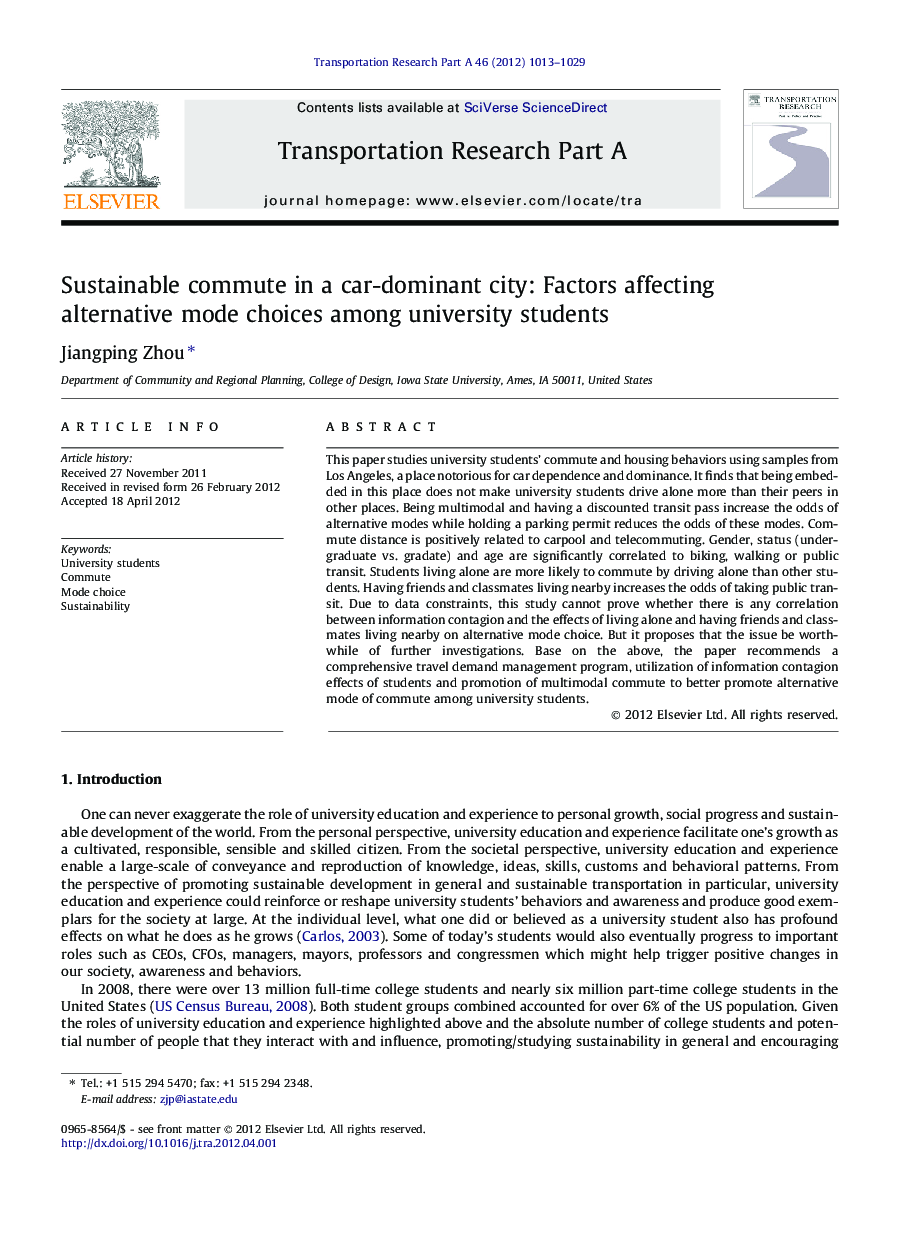| Article ID | Journal | Published Year | Pages | File Type |
|---|---|---|---|---|
| 312085 | Transportation Research Part A: Policy and Practice | 2012 | 17 Pages |
This paper studies university students’ commute and housing behaviors using samples from Los Angeles, a place notorious for car dependence and dominance. It finds that being embedded in this place does not make university students drive alone more than their peers in other places. Being multimodal and having a discounted transit pass increase the odds of alternative modes while holding a parking permit reduces the odds of these modes. Commute distance is positively related to carpool and telecommuting. Gender, status (undergraduate vs. gradate) and age are significantly correlated to biking, walking or public transit. Students living alone are more likely to commute by driving alone than other students. Having friends and classmates living nearby increases the odds of taking public transit. Due to data constraints, this study cannot prove whether there is any correlation between information contagion and the effects of living alone and having friends and classmates living nearby on alternative mode choice. But it proposes that the issue be worthwhile of further investigations. Base on the above, the paper recommends a comprehensive travel demand management program, utilization of information contagion effects of students and promotion of multimodal commute to better promote alternative mode of commute among university students.
► This paper studies university students’ commute and housing behaviors. ► Being multimodal increases the odds of using alternative modes while holding a parking permit reduces the odds. ► Commute distance is positively related to carpool and telecommuting. ► Gender, status (undergraduate vs. gradate) and age are significantly correlated to biking, walking or public transit. ► Those living alone are more likely to commute by driving alone than others.
